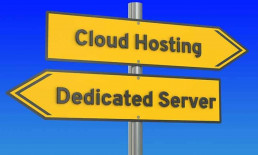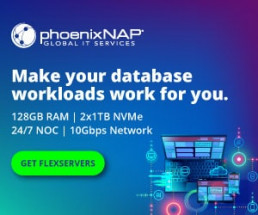The server that you choose makes all the difference in your business efficiency. Depending on your decision, it could also thwart or aid in your ability to expand. Selecting the best server for your small business does not have to be a hassle. There are the standards that you can count on to make the right choice.
First, let’s go over the essential functions of a business server. Then, we will touch on the operating systems that drive servers and make them perform. These are two of the most critical aspects of choosing a server so that you can make an informed decision for your business.

Understanding The Functions Of A Small Business Server
Small to Medium Businesses need servers that scale to their needs. You should not overpay for resources that you do not use though this is a typical sales practice to bundle features into a solution. You should also have adequate hardware to deal with unexpected traffic spikes. Once a marketing program starts working, you will likely see improvements in your online traffic. You need a server that can handle these increases.
Here are the most common uses of a server in the small business environment:
-
- Securing hosting email. Startups can start by utilizing Gmail, Yahoo, or Mail.com, but it’s best to transition into a domain-specific email client quickly. SMBs should upgrade and think more deeply about security and their digital reputation.
- Hosting eCommerce. The right server provides secure and efficient commercial transactions. Your company must protect the personal and financial information of its clients. You may be held legally responsible for the unprotected information. Hosting eCommerce securely is essential.
- Hosting a website. You want your content to be available to your audience. Your web host determines the speed and efficiency of your site. Your web host can also make a tremendous difference in your search engine ranking.
- Hosting applications. Hosting apps on a remote server reduces your need for new hardware. Instead of purchasing equipment to store in-house, you can rent it through the cloud. Some common uses for internal apps include employee management, CRM, planning and invoice management SaaS apps.
- Creating a virtual server environment. Does your business cover multiple brands? You may need a virtual server interface. Do your employees work remotely? You may need virtual desktops. Your small business server hosting can make this happen.
- Data backup. You increase data storage security for your business when you back up to the cloud. If something unexpected happens, you can quickly reload a saved instance of your business. There is very little lag when this process is used efficiently. You may not even have to inform your customers that anything went wrong.
- Storing documents. Storing documents is essential for business continuity and data protection. It also aids in disaster and data recovery strategies. You can also enable employees to work remotely.
A remote server can deliver many other services to an SMB. Powerful small business servers can support all of these services at the same time and more. Many companies will use separate servers for each feature. This makes a company more accessible to expand digitally.
Your Operating System
The operating system is of vital importance. Imagine if your home PC ran on an OS that you couldn’t work with and ultimately did not like to use. You would be quickly finding a solution that worked and was much more effective. Think of the operating system in the same way.
Server software requires a specialized OS. It’s not often that you’ll see the same operating system on your desktop as in a server. There may be similarities, but ultimately the functionality will be different.
Here are your main choices when it comes to selecting the best server os for small business:
-
- Linux. This semi-popular desktop operating system is more often known as a server OS, made to work for many users simultaneously. Linux has many variations that combine a full OS and a package manager. You end up with a faster install and better operations this way. The most popular distributions for Linux includes Debian, CentOS, and Ubuntu.
- Windows OS. Microsoft names its OS after its desktop operating system, but rest assured that they are dramatically different when it comes to functionality. Microsoft Windows Server includes apps that support virtualization, security and the IIS web server.
Linux is more popular than Windows, server-side. Linux is free in many cases. It is also more efficient and less open to being hacked. Linux also can support many of the most popular open-source software options. Many Linux software packages are also free.
Windows offers a more pleasing graphical user interface (GUI) for server management. Linux requires learning complex command line syntax. Additionally, many business owners prefer to use Microsoft to complement their current base of applications. These applications often include Active Directory, MS SQL, and Sharepoint. These Microsoft branded programs run far more efficiently on their native platform.
Support is also a reason companies will lean towards Microsoft. They are known for years of helpful and responsive support. With Linux being open-source, your options for support are either researching yourself through online message boards or contacting your Linux distributor.

Dedicated vs. Cloud Servers
Once you’ve settled on an operating system, you need to decide on your server’s hardware infrastructure (to be fair, these choices would be made simultaneously). Your two main options are between a dedicated server versus a cloud-based server. They are both self-contained environments that are fully complete. However, the underlying hardware of each server type is used differently.
The Cloud For Small Business
Think of a cloud server as a piece of a dedicated server, in a way. From a customer perspective, you will receive similar benefits. However, you actually share the physical space with other clients. The thing is, you’ll never know that you’re sharing space or how many other people you’re sharing it with unless a major issue comes up.
The cloud is comprised of virtual machines. They run on top of an enterprise-grade dedicated server. The dedicated server can create multiple virtual servers and provide a virtual environment for each client.
Power
Each virtual server functions as a slice of a dedicated server. The virtual cloud server is always weaker than its bare metal base, but a virtual server can still be incredibly powerful.
Cloud servers can receive resources from many dedicated servers, creating a virtual space that can match the credibility of a dedicated environment. The total power available in the cloud depends on the physical servers providing resources.
Cloud servers have more than enough power to handle the needs of a small business. Multiple servers work together to manage various companies at the same time.
Resources
The Cloud can host websites, applications, file sharing applications, email clients and eCommerce. The primary functions are the same as a dedicated server though due to hardware differences, speed may suffer in a cloud environment.
There is a built-in latency that slows down all virtual servers regardless of their infrastructure. The extra layer of virtual processing between the base OS and outside requests for data requires more time regardless of the total resources that are available.
Efficiency
Even the best cloud provider will almost always lag behind even a moderate dedicated server. That said, it’s worth mentioning that most SMB’s do not require a dedicated server. Even if they do, they are so cost-prohibitive that it’s often more economical to weight the minimal differences in speed vs. performance as an overall hit on a business’s finances.
Cloud server hosting infrastructure is efficient enough to handle the needs of most small businesses and with minimal customer engagement. The company managing the server is just as important as the infrastructure. Make sure that you choose a reputable web hosting company with strong storage solutions.
Scalability
The virtual server is much easier to scale from the perspective of the client. Scalability, outside of cost, is the main advantage of the cloud over a dedicated server.
There must be available resources to allow a business to scale their server. The one disadvantage of the virtual space is that in a live environment, clients compete for resources. If many clients experience unexpected traffic spikes at once, the server may experience the “noisy neighbor” effect. There may not be enough resources to go around in this case and could cause a problem for multiple clients. Thankfully, this situation is often mitigated by a reputable host that is actively managing traffic across the network.
Scalability is also a perk for a growing business when they are looking to expand their entire environment. There is no need for downtime to add resources to the virtual space which becomes extremely attractive for companies. Adding cloud storage is an incredibly simple task. There are also many hosting companies that are investing strongly in machine learning architecture to better utilize resources.
Speed
The cloud can be slower than dedicated solutions because of the built-in lag. Speed in the world of virtual servers is a resource that can become volatile. If too many clients are vying for the same resources, the cloud slows down. Dedicated resources are always going to be faster, but with advancements in technology and a reliable hosting provider, these limitations are becoming less and less.
Cloud Server Pricing
Cloud servers are less expensive than dedicated business servers. There are many clients on a single piece of hardware. Each client only pays for a fraction of the resources on the physical server.
There are also fewer resources allocated to each client. In return, the price is much lower.

The Dedicated Server
The dedicated server is yours and yours alone, though it will most likely live inside of a data center. You don’t share it with another company, you don’t have to worry about another company hogging your resources, and you’re entirely responsible for it. Providers can service many clients simultaneously. When you rent a dedicated server, you are reserving your own dedicated space for your business. There are many advantages to this configuration though it’s not always ideal for every small business.
Power
Dedicated servers are the most powerful option for a server. The purpose of a dedicated server is to provide its client with more resources than it will ever need. Physical tower server hardware is difficult to upgrade without downtime. This results in large hardware racks for potentially limitless resources and efficiency but for a customer that may never utilize the power.
A dedicated server could potentially contain dozens of processors that can host hundreds of terabytes of data and thousands of users simultaneously. It’s likely to have many different storage options, large hard drives (configurable in hot-swappable compartments), aggressive graphics cards, and much more. You can also maintain the infrastructure of a complex eCommerce platform along with hundreds of concurrent applications.
Resources
Dedicated servers far outclass cloud servers concerning straight-up resources. However, dedicated servers are more difficult to upgrade. It is best to include all needed requirements within the original infrastructure build of the server. Dedicated servers are much less flexible than the cloud server in this regard.
Even a moderately featured dedicated server can support most SMB database and application trees.
Efficiency
A dedicated server is built to be highly effective for a single client. The client accesses the OS directly. No lag is generated from any additional layers of processing. The result is a very streamlined system. Dedicated servers are less stressed during peak traffic times. They are highly efficient for a more extended period when compared to cloud servers.
Scalability
A dedicated business server can be scaled through additional ports. Upgrading a dedicated box is much more difficult than scaling to the cloud. For that (and many other reasons), companies don’t often invest in a dedicated server as a short-term solution. Most businesses look for a server that can scale with them over time without drastic hardware changes.
Speed
The dedicated server is built to be fast. There are no extra layers of processing between the operating system and requests for data. There is no built-in latency. Additionally, data streams within the dedicated environment are genuinely isolated. All resources are allocated in one direction. There is never a risk of a loss of resources.
Price
Here’s the thing about dedicated servers: they are much more expensive than cloud-based options. As previously mentioned, dedicated server clients are paying for the use of all available hardware resources. Dedicated clients receive full use of these resources regardless of the outside environment. Resources can never be assigned away from the client.

Dedicated Server Options
The dedicated server has benefits over the cloud server regarding power, resources, efficiency, and speed. However, the virtual server is the more flexible and scalable option. Virtual servers are also much less expensive. Does your business need high-cost power or low-cost flexibility?
Dedicated servers often have more resources available than a small business requires. A small business may intend to scale in the near future and believe that a dedicated server is the way to go. Consider the following before committing.
The business world is a volatile one. Web traffic is not guaranteed. Just because a company experiences a spike in traffic one month does not mean that the traffic will last. You may not have the ability to accurately forecast future traffic. Companies may need more data before being able to commit to a dedicated server and stay out of the red.
Small businesses with a definite plan may need a dedicated server. This is especially true if an industry is expanding along with a company. If a company expects a consistent audience, then it may require a dedicated server.
In most cases, dedicated servers are reserved for enterprise-level companies. SMBs usually have less volume and therefore fewer requirements for space and power.
The flexibility and scalability of the cloud environment may be more important than the immediate power and the efficiency of the dedicated server. The elasticity of the virtual world matches the volatility of the business world.
Cloud servers can emulate a lower level dedicated server. However, resources allocated to a client in the virtual world can be taken away. Speed and efficiency can suffer for clients in the virtual world under certain circumstances. Both clients may experience a noisy neighbor effect. The effect can be temporary or sustained depending on the number of clients that are using the underlying physical server.

Servers For Small Business: Your Next Move
The average virtual server can handle the needs of most SMB’s. There are enough resources here to scale up without experiencing the noisy neighbor effect.
The dedicated server is much more expensive. Many small and medium-sized companies are on a strict budget. A growing company can benefit from a timely evolution into a dedicated server environment if they end up requiring it.
As a company, you want to do your research and understand the market before making a decision. Strive to create a cost-effective, long-term relationship with the right service provider. This partnership will allow your business to grow and prosper. Your industry is competitive and stressful. Make sure that your server solutions aren’t adding to that stress so that you can do what you do best: running your business!
